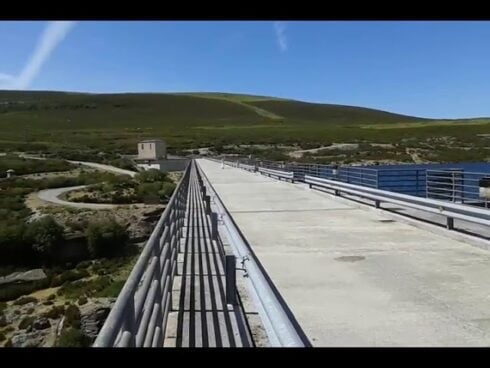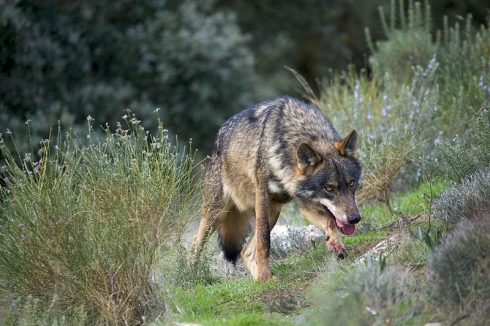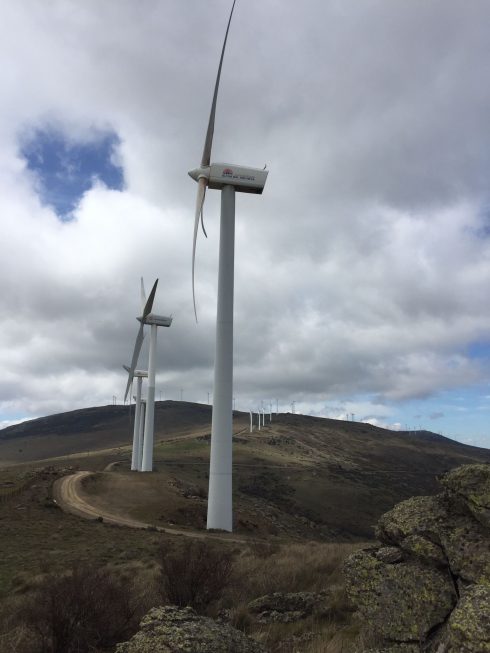A SUSPICIOUS leak of sewage from Ronda could be behind the deaths of thousands of fish in the Guardiaro River between Benaojan and Jimera de Libar.
In an environmental disaster not seen for 15 years, practically all life has been snuffed from the river.
While thousands of fish lie belly up choking the river, huge one-tonne bags line its banks stuffed full of the dead Barbel, many five or six kilograms in weight.
Hundreds more lie prone in dead-end gullies after losing their battle to find oxygen.
In a further tragedy for the village of Jimera de Libar, which sits on the edge of the Grazalema national park, the area’s colonies of otters, kingfishers and herons have already flown to find new habitats.
“It is horrific,” said musician Toph Smith, who has lived in the village for five years. “There are thousands of these poor fish floating in the river.
“In five years of living here, I have never seen anything this bad. It is the smell that really overpowers you.”
While the region’s environment department initially insisted that the disaster was caused by September’s heavy rainfall, increasing speculation points to a malfunction in Ronda’s new sewage works.
Jimera de Libar mayor Mayte Dominguez said: “We don’t believe it was because of the floods because it has never happened before.
“It has completely destroyed the ecosystem of our river. Everything is dead.”
The Olive Press has discovered that a large unprecedented deluge of sewage was dumped into the river close to the Molino del Puente hotel on the A376 below Ronda.
“It went on for 20 minutes and was incredible,” said a source, who lives next door. “It came from a drainage channel linked to the old collector.
“I have never seen anything like it. It was thick black gunge and it caused the river to rise by two or three feet.
“We wondered if they were taking advantage of the heavy rainfall to clear out the old sewage works.
“Either way last week we had plenty of fish and otters here, while now there is nothing.”
Downstream, at the Hotel Molino de Cuatro Paradas, in Benaojan, it caused the river to rise by four or five feet. A member of staff said: “It was this disgusting thick black liquid. It was very unpleasant.”
But the worst damage was in Jimera de Libar, where the tidal wave of sewage caused a foam on the surface up to five metres high.
Miguel Arquillos, boss of rural hotel Molino la Flor, is furious that despite promises since 2005, most of the area’s towns still put raw sewage and other chemicals into the river.
“While Ronda has apparently finally got its sewage works, in Benaojan, Montejaque, Jimera and Cortes they don’t have them.
“It is embarrassing. The environment department said they would be working by 2005, but most still do not have projects approved.”
For Toph Smith it is just one more sad saga in a river that in 2007 is still choked full of sewage from many nearby towns.
“No-one believes it was merely to do with the floods,” he said. “It is disgusting what goes into that river. Sometimes especially in the early hours of the morning, the smell can wake you up and you can virtually taste it, let alone smell it.
“That smell has now been replaced with the smell of rotting fish.”
Two months ago, the Olive Press reported how meat factories in Benaojan continued to pour meat products and blood into the river Guardiaro.
A source at the Junta’s environment department in Ronda, said that an investigation had been launched into the exact cause of the leak.
While he said that it appeared to be a combination of factors, the fact that the new sewage works is not working properly is “suspicious.”
“In previous years the sewage entered the river from the collector at a few points, now it only enters at one.
“The fact that the sewage works is not functioning properly might have caused it. We are looking into it, thanks for your help.”








